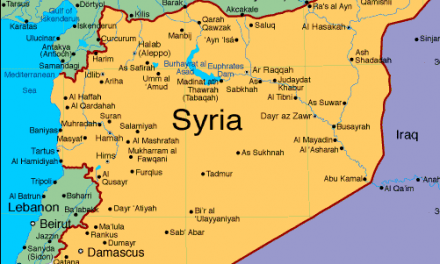By Antonia Dimou, Modern Diplomacy
Greece is a country with many unexplored promising oil and gas fields.In fiscal terms, investments in hydrocarbon development and production throughout the country are highly competitive and attractive. From a hydrocarbon exploration perspective, offshore Crete in Southern Greece presents a frontier area that faces two major challenges namely a combination of very complex geological history and ultra-deep waters exceeding three thousand meters in most areas.
Following the “Call for Tenders for the exploration and exploitation of hydrocarbons Offshore West Crete and Southwest Crete” in March 2018, the consortium of French Total, American ExxonMobil and Hellenic Petroleum (Helpe) was granted by Ministerial Decision in July 2018 rights of hydrocarbon exploration and production for two offshore blocks in West and Southwest Crete. The exploration stage is expected to last up to eight years, and in the event of a commercial discovery, the production lease agreement is set tobe valid for 25 years plus two five-year extensions. Currently, the concessions awarded to the consortium are expected to pass in the Greek Court of Audit. This will prompt a swift parliamentary ratification permitting the initiation of exploration activities.
Additionally, the Hellenic Hydrocarbon Resources Management Authority intends to declare a new licensing tender for other offshore blocks in south Crete. To this end, the Authority published in February 2019 a tender for the Environmental Study that is prerequisite for companies to commence exploration once they are awarded certain concessions.
In the Ionian Sea, a concession located in southwest of Corfu Island that was granted to the consortium of Spain’s Repsol (50%, Operator) and Helpe (50%) is expected to be approved by the Greek Court of Audit and ratified by the Greek Parliament. This concession in southwest of Corfu covers an offshore area of 6,671 sq. km and its water depth reaches approximately 1300-1500 meters. The concession is relatively under-explored as only few wells have been drilled so far in nearby locations. In geological terms, the oil and gas discoveries offshore Albania and Italy are valid indicators of a working petroleum system in the Ionian Sea.
Noteworthy, several concession agreements in the Ionian Sea are ratified by the Greek Parliament such as the agreement for the Gulf of Patraikos (Helpe 50% – Edison 50%); for Block 2 in West Corfu (Total 50% – Helpe 25% – Edison 25%); for Arta-Preveza Block; for northwest Peloponnese (Helpe 100%); and, for onshore blocks in Aitoloakarnania and Ioannina regions(Repsol 60% &Energean 40%).
On a parallel level, Greece’s role in developing regional gas fields is highly significant. Greek Energean Oil& Gas company contributes to the sustainable development of energy resources in Israel. The company is the operator of the IsraeliKarish and Taninfields that are world class assets with 2.4 trillion cubic feet (tcf) of natural gas and 33 million barrels of light hydrocarbon liquids. Energean plans to deliver gas in the Israeli domestic market in the first quarter of 2021, while the company’s 2019 exploration program in Israel is expected to target up to 2.3 tcf of gross prospective gas resources that can be quickly, economically and safely monetized.
Following the signing of the I.P.M. Beer Tuvia gas sales agreement in January 2019, Energean has also signed purchase and sales agreements for 4.6 billion cubic meters (bcm) per year of gas from its Floating Production Storage and Offloading (FPSO) unit. The FPSO is being built with total processing and export capacity of 8 bcm per year, that will enable not only Karish and Tanin but also future discoveries to be monetized.
Interestingly, Energean’s new gas discovery in the Karish North exploration well can prove to be significant for the company’s East Mediterranean portfolio as preliminary findings indicate that initial gas is estimated between 1 tcf and 1.5 tcf. The Karish North discovery is planned to be commercialized via a tie-back to Energean’s FPSO that is located 5.4km from the Karish North well. The Karish North discovery opens the way for future gas sales agreements centering both on the growing Israeli domestic market and key export markets in the region.
Coming to neighboring Cyprus, the island is assessed to gain significant geopolitical benefits from its commercially viable levels of hydrocarbon resources. The discovery of substantial gas resources by American energy company Exxon Mobil in block 10 that lies within the Cyprus Exclusive Economic Zone (EEZ) is expected to not only boost the European energy security, but also advance American energy interests in the East Mediterranean. In fact, the American company announced in early March 2019 that it encountered commercial quantities of hydrocarbons in the Glafkos 1 well in Block 10 estimated at approximately 5-8 tcf thus presenting one of the greatest discoveries worldwide in recent years.
That said, the discovery of additional gas resources within the Cyprus EEZ will undoubtedly facilitate the construction of a greenfield LNG liquefaction plant at the Vasilikos area that can complement the Egyptian LNG facilities in Damietta and Idku and receive Israeli gas to be exported to Europe.
When it comes to the Cypriot Aphrodite gas field, three major issues need to be addressed so that exploitation of its reserves happens. The first is the execution of the Cyprus-Egypt agreement that foresees the construction of a new 380 km subsea pipeline connecting the Cypriot Aphrodite gas field to the Idku facilities in Egypt for liquefaction and re-export of Cypriot gas to third markets. The second is the renegotiation of the production-sharing contract for the field between the Cyprus Hydrocarbons Company and the Noble-Shell-Delek consortium.
The third is the use of international arbitration to settle a dispute between Cyprus and Israel over the development of the Aphrodite gas field that lies on the common maritime border and within their respective EEZs. It is widely recommended however that both countries should ultimately not settle their dispute via international arbitration, as this will impede the timely development of the field. Instead, both countries should work quietly on striking a unitization deal that would allow the joint exploitation, development and revenue sharing of the Cypriot Aphrodite field which extends to the Ishai gas field in Israeli waters.
Nicosia’s right to develop its energy resources within its EEZ is important and falls not only within its national security strategy but also within the scope of the trilateral Cyprus-Greece-Israel mechanism that welcomes natural gas finds in the Eastern Mediterranean and their potential to contribute to energy security and diversification.
Increased energy cooperation to realize the energy potential of countries like Cyprus and Greece is one-way proving that regional mechanisms are not mere talking shops but instead designers of a grand energy strategy.



















